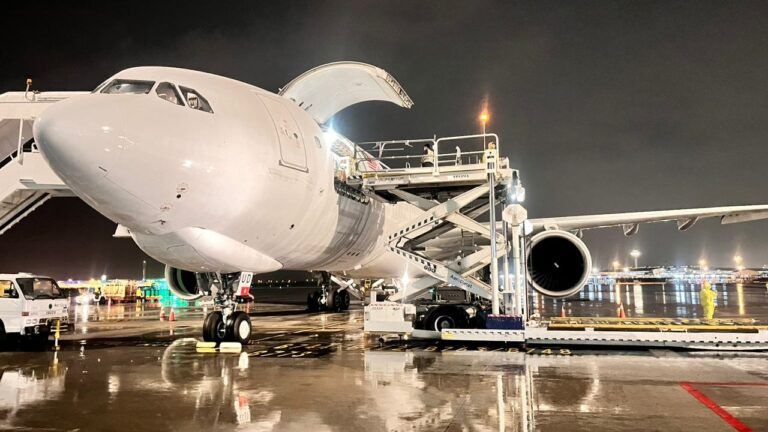While the last few years have been a rollercoaster for the industry, cargo has emerged as king in the face of a range of economic and geopolitical challenges. This background of uncertainty has left companies needing to ensure they are prepared to adapt at short notice to rapidly changing events.
Focus areas include operating costs; including fuel and foreign exchange rates, robust procurement systems to manage risks and a proactive approach to cushion the impact of any crises and ensure operational resilience.
“We have experienced the highs and lows and are equipped to navigate through any challenges that come our way,” Mark Jason Thomas, Chief Executive Officer of MASkargo, stated.
“The pandemic put us all into a receptive mode where we look at all the ways we can improve processes internally and give returns to customers in terms of experience.
“We’ve been deeply engaged in leveraging technology to streamline our operations. For instance, our warehouse stands as one of the first integrated, automated facilities in Asia, a testament to our commitment to operational excellence and customer satisfaction.”
“In terms of our operational endeavours, we have recently initiated a pilot to maximise our pallet utilisation through a system designed to optimise redistribution.
“Additionally, sustainability is a key focus for us. At our Cargo Services Unit (CSU), we have implemented various programmes, including initiatives such as solar-powered warehousing facilities. These environmentally friendly practices are part of our blueprint for the future.”
Drivers of growth
As for many in the Asia-Pacific region, e-commerce continues to be a significant growth driver for MASkargo, particularly in the middle mile segment, with an operational focus on areas like Hong Kong, collaborating with regional partners to strengthen their foothold.
“We have seen substantial growth in express shipments, and we believe this trend will continue. It is a sector we are committed to, and we will continue to actively participate and expand in both the general cargo and e-commerce segments,” Jason highlighted.
“Our company believes in the power of collaboration. We aim to collaborate with partners who can leverage each other’s strengths. This strategy helps us optimise our resources, and we are looking for partners to enhance our external network.”
China holds firm
China remains a critical market for MASkargo, despite recent sluggishness, with the carrier confident in its post-Covid rebound and committed to maintaining significant capacity in the country’s major hubs.
“We have almost daily operations to China, particularly to Shanghai and Guangzhou, complementing our existing passenger network,” Jason explained.
“We are optimistic about China’s future growth. China has always been and will continue to be, integral to MASkargo, and we are dedicated to sustaining and expanding our operations there.”
Even while, in light of the “China plus one” strategy, MASkargo is capitalising on emerging markets in Southeast Asia, including its home country of Malaysia and Vietnam, the carrier is focused on its central mission to increase trade flows within Asia.
“Perhaps spillovers or opportunities will arise from that policy,” Jason mused. “Building alliances has been beneficial for us, and we are always looking to collaborate with suitable partners.”
Return to normality
The resumption of passenger travel, along with the introduction of new flights to various destinations, presents an opportunity to strengthen the MASkargo belly network through Malaysian Airlines. This allows the carrier to strategically allocate cargo capacity to key segments or regions, showcasing its agility.
“For instance, certain sectors in America that were previously underserved by our passenger network are now accessible, enabling us to focus on areas with high demand,” Jason outlined.
“While the influx of capacity may lead to challenges such as yield dilution in certain markets, we believe we can overcome this by prioritising high-yield or high-demand sectors where we have a strong presence. We are cognizant of the global air cargo market’s fluidity. Thus we always endeavour to maintain agile and dynamic network planning.”



